An In-depth Report on Digital Skills and Research Methods
VerifiedAdded on 2023/06/18
|9
|706
|468
Report
AI Summary
This report delves into digital skills and research methods, focusing on the process of collecting and managing information for task completion. It references a study involving 174 students and their Duckworth Grit Scores obtained through an online test, reflecting their academic abilities. The report highlights the use of data within the DIKW (Data, Information, Knowledge, Wisdom) framework and explains the basis of the survey work, which is rooted in different levels of academic skills acquired by students. The conclusion emphasizes the importance of research in developing knowledge and skills, and the role of DIKW in enhancing business activities. Several references are cited to support the analysis of digital transformation, soft skills, and the future of learning.
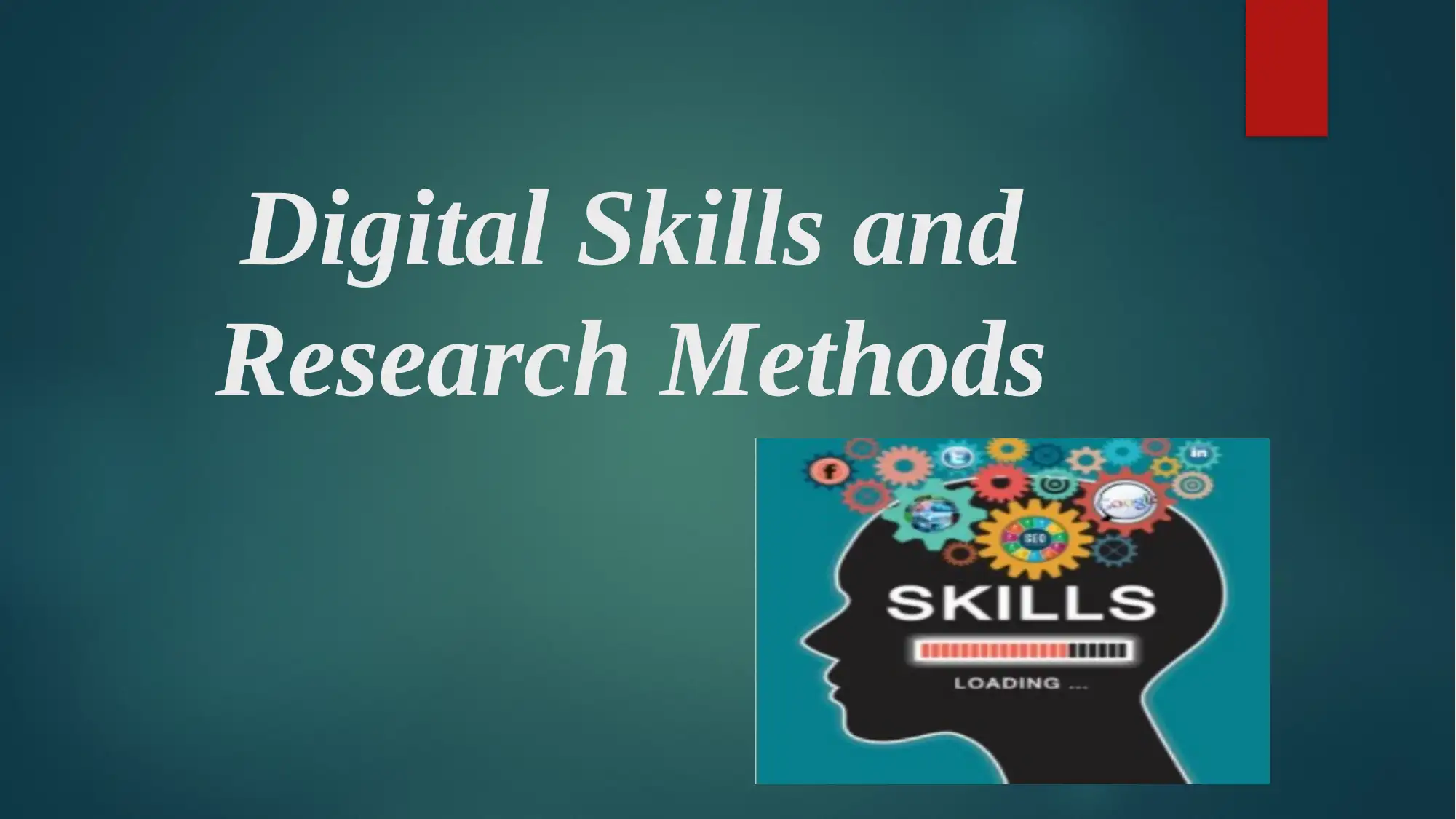
Digital Skills and
Research Methods
Research Methods
Paraphrase This Document
Need a fresh take? Get an instant paraphrase of this document with our AI Paraphraser
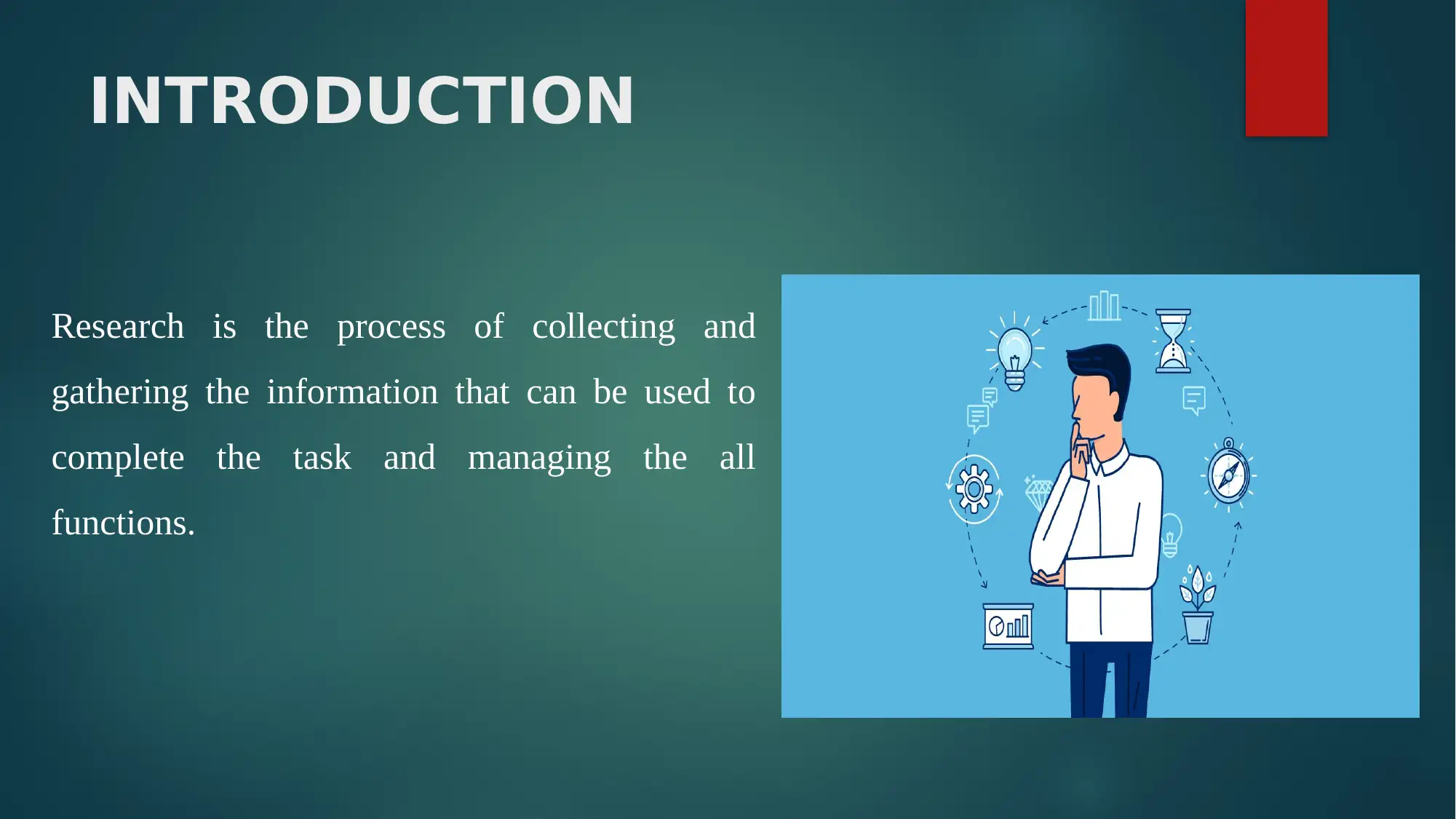
INTRODUCTION
Research is the process of collecting and
gathering the information that can be used to
complete the task and managing the all
functions.
Research is the process of collecting and
gathering the information that can be used to
complete the task and managing the all
functions.
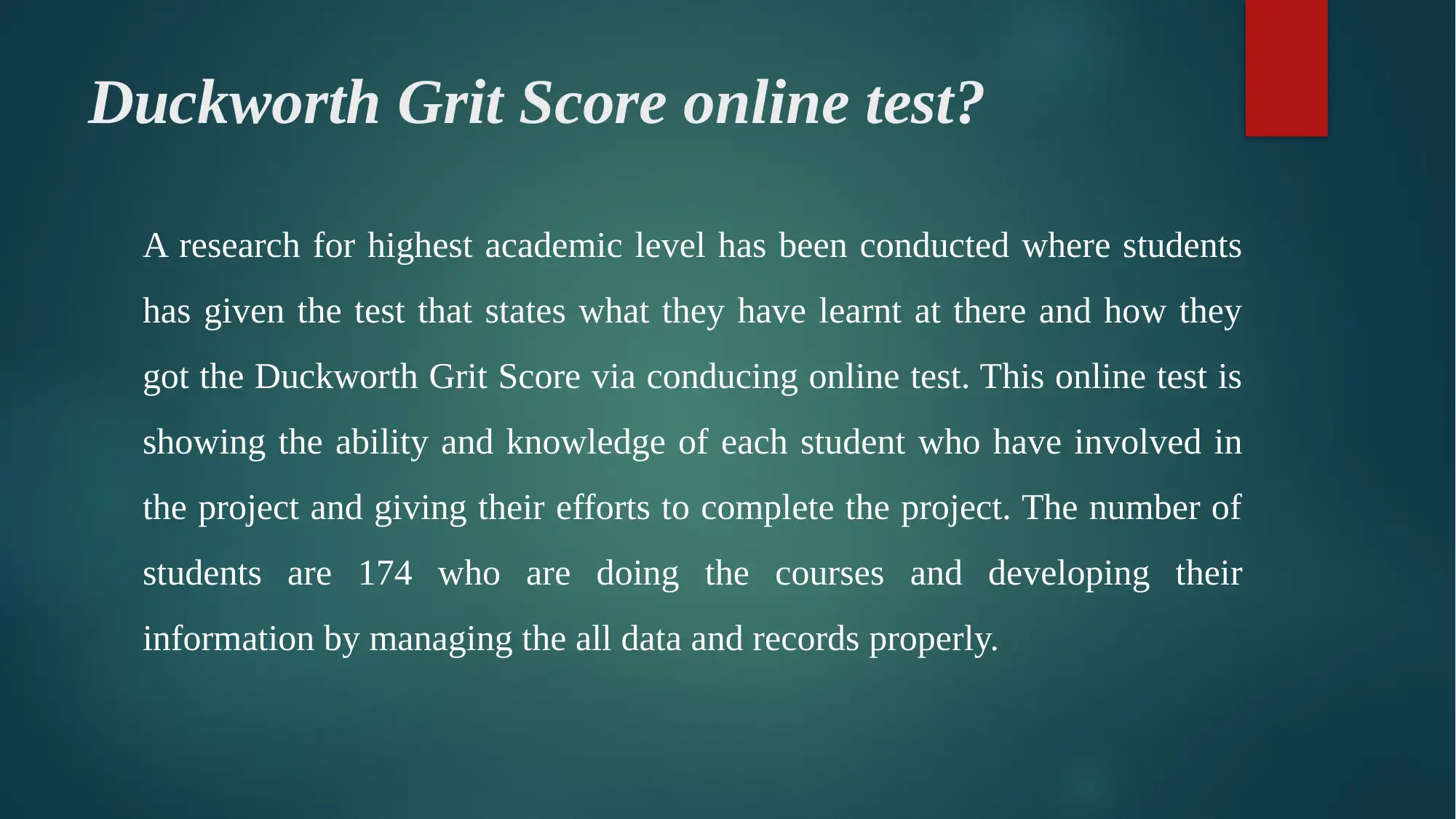
Duckworth Grit Score online test?
A research for highest academic level has been conducted where students
has given the test that states what they have learnt at there and how they
got the Duckworth Grit Score via conducing online test. This online test is
showing the ability and knowledge of each student who have involved in
the project and giving their efforts to complete the project. The number of
students are 174 who are doing the courses and developing their
information by managing the all data and records properly.
A research for highest academic level has been conducted where students
has given the test that states what they have learnt at there and how they
got the Duckworth Grit Score via conducing online test. This online test is
showing the ability and knowledge of each student who have involved in
the project and giving their efforts to complete the project. The number of
students are 174 who are doing the courses and developing their
information by managing the all data and records properly.
⊘ This is a preview!⊘
Do you want full access?
Subscribe today to unlock all pages.

Trusted by 1+ million students worldwide
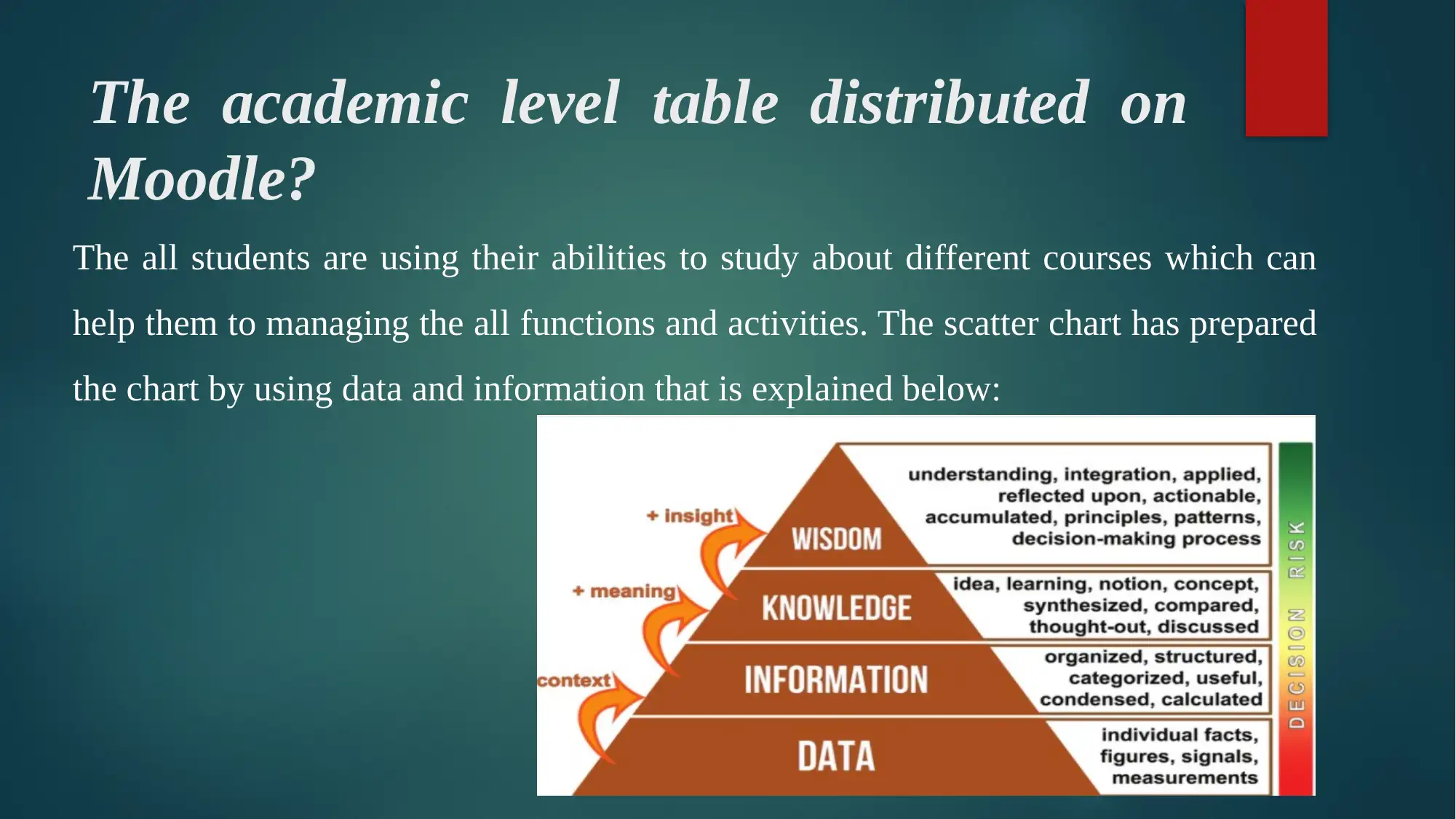
The academic level table distributed on
Moodle?
The all students are using their abilities to study about different courses which can
help them to managing the all functions and activities. The scatter chart has prepared
the chart by using data and information that is explained below:
Moodle?
The all students are using their abilities to study about different courses which can
help them to managing the all functions and activities. The scatter chart has prepared
the chart by using data and information that is explained below:
Paraphrase This Document
Need a fresh take? Get an instant paraphrase of this document with our AI Paraphraser
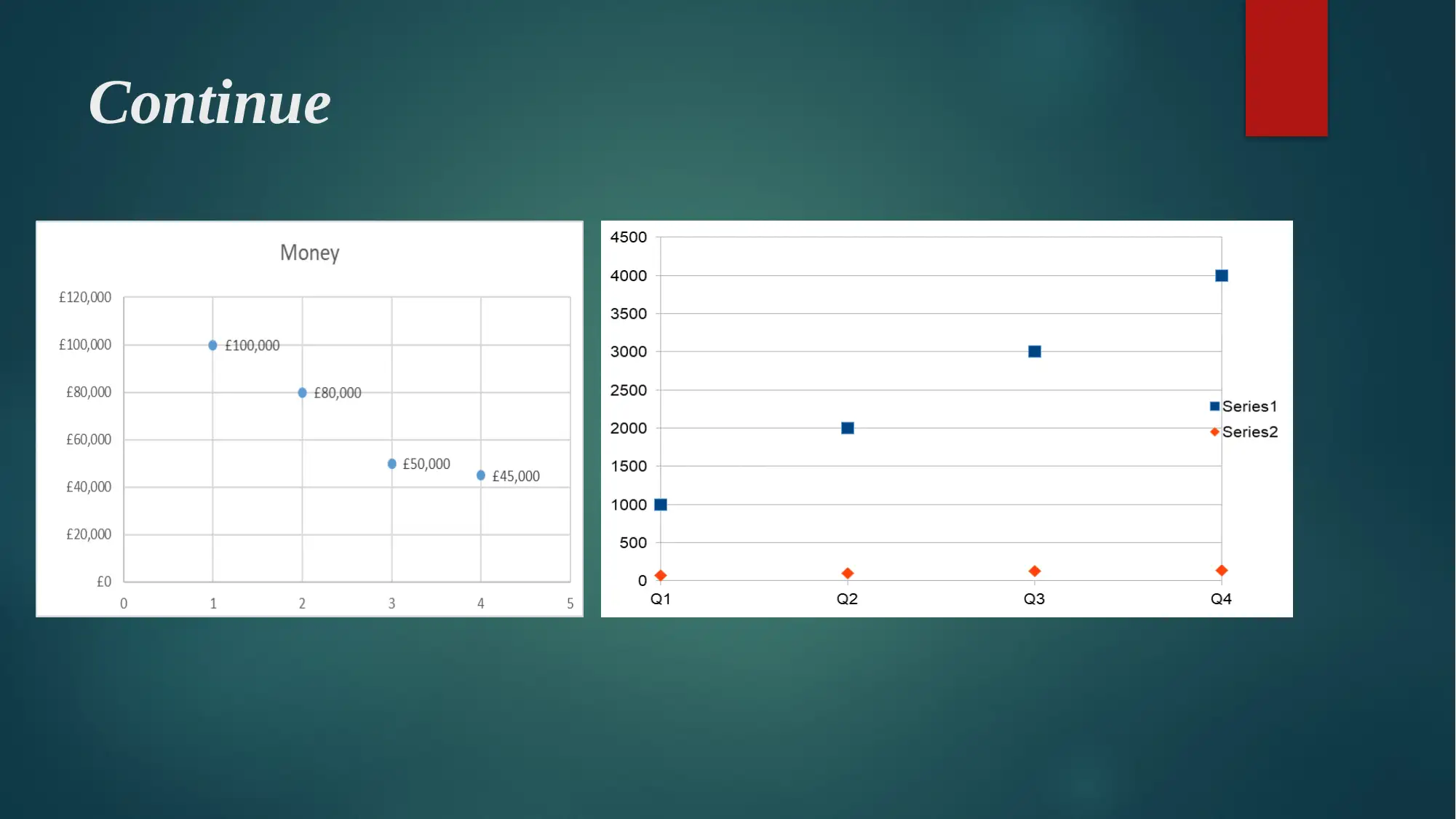
Continue
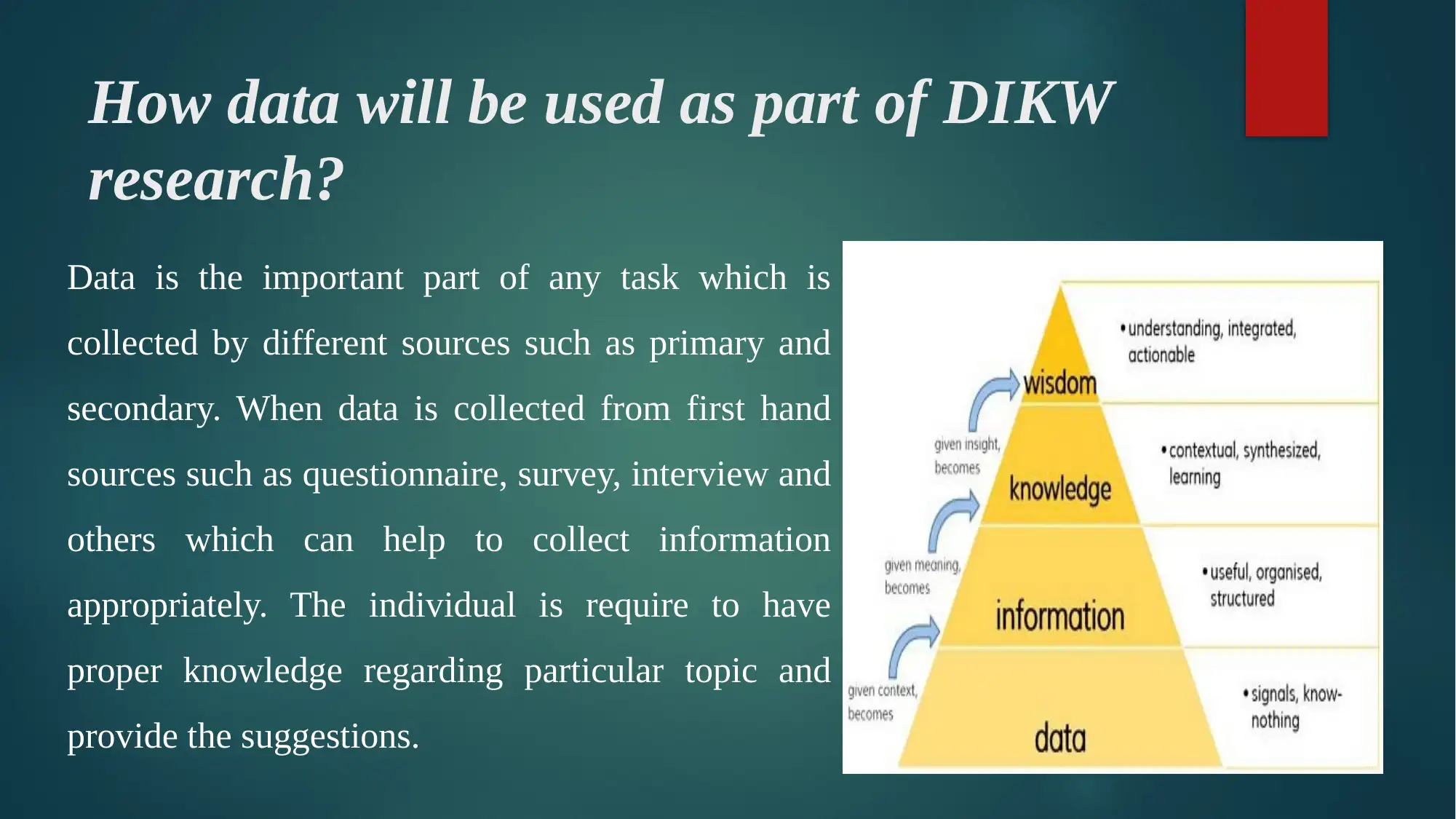
How data will be used as part of DIKW
research?
Data is the important part of any task which is
collected by different sources such as primary and
secondary. When data is collected from first hand
sources such as questionnaire, survey, interview and
others which can help to collect information
appropriately. The individual is require to have
proper knowledge regarding particular topic and
provide the suggestions.
research?
Data is the important part of any task which is
collected by different sources such as primary and
secondary. When data is collected from first hand
sources such as questionnaire, survey, interview and
others which can help to collect information
appropriately. The individual is require to have
proper knowledge regarding particular topic and
provide the suggestions.
⊘ This is a preview!⊘
Do you want full access?
Subscribe today to unlock all pages.

Trusted by 1+ million students worldwide
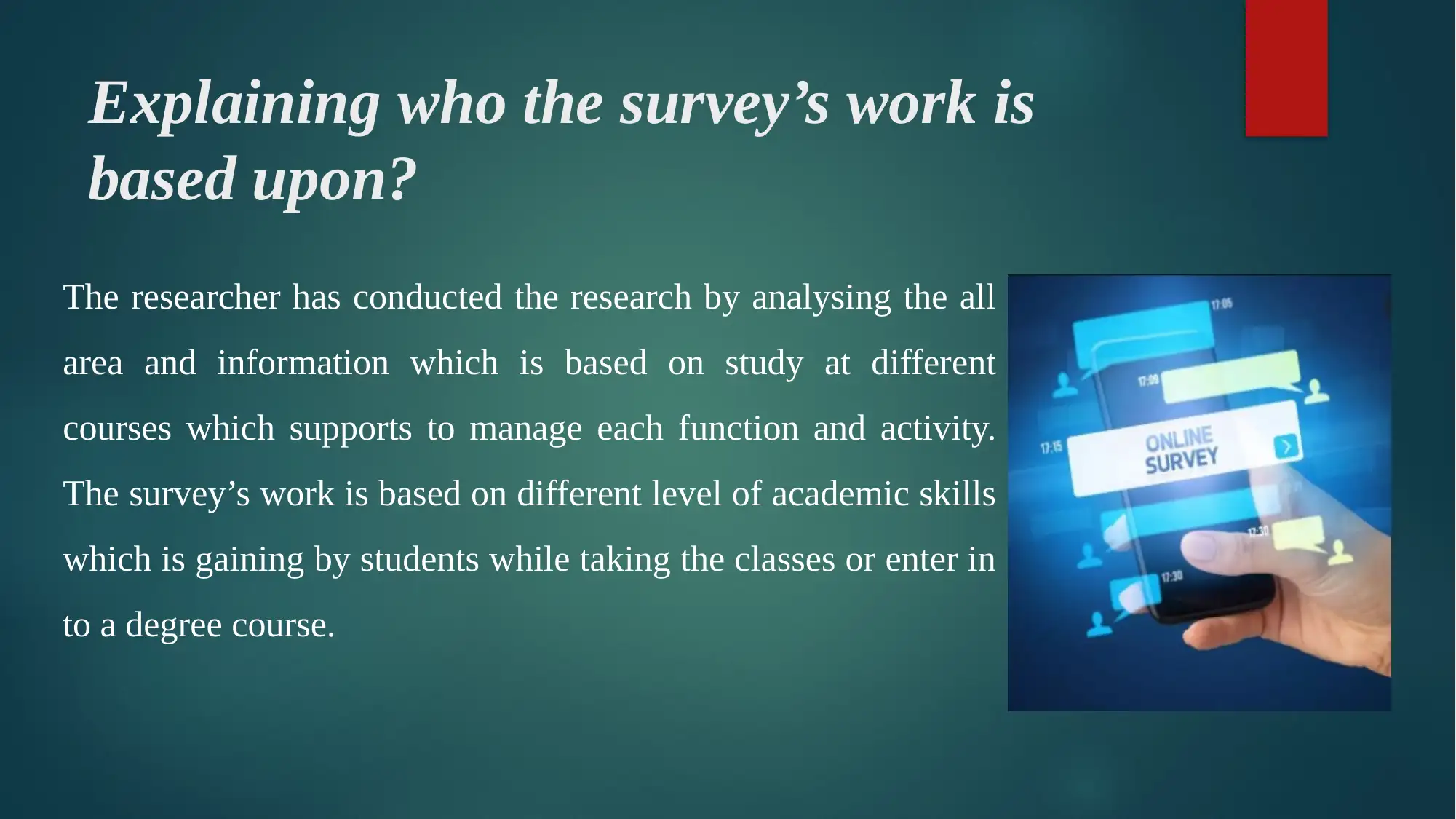
Explaining who the survey’s work is
based upon?
The researcher has conducted the research by analysing the all
area and information which is based on study at different
courses which supports to manage each function and activity.
The survey’s work is based on different level of academic skills
which is gaining by students while taking the classes or enter in
to a degree course.
based upon?
The researcher has conducted the research by analysing the all
area and information which is based on study at different
courses which supports to manage each function and activity.
The survey’s work is based on different level of academic skills
which is gaining by students while taking the classes or enter in
to a degree course.
Paraphrase This Document
Need a fresh take? Get an instant paraphrase of this document with our AI Paraphraser
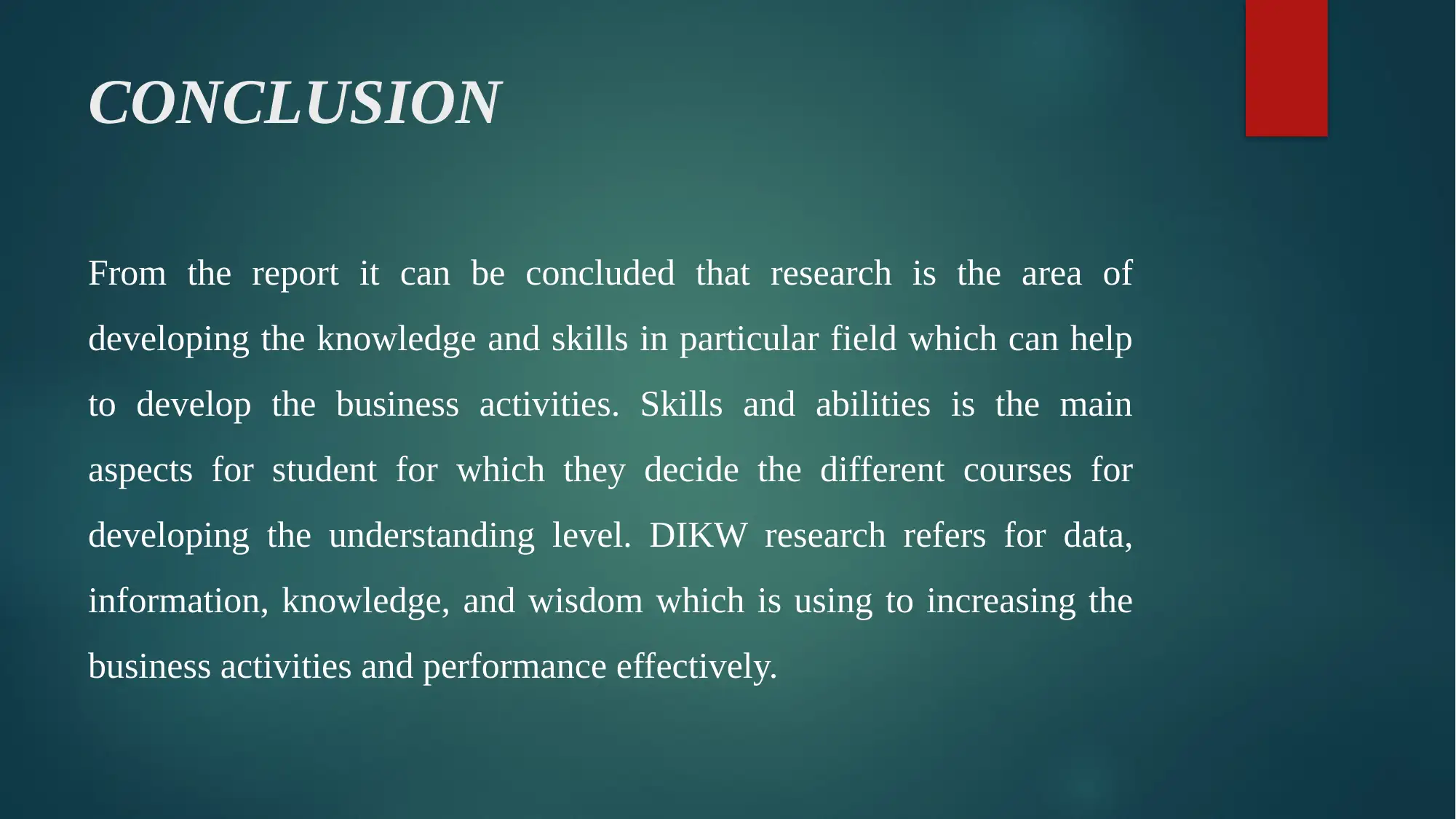
CONCLUSION
From the report it can be concluded that research is the area of
developing the knowledge and skills in particular field which can help
to develop the business activities. Skills and abilities is the main
aspects for student for which they decide the different courses for
developing the understanding level. DIKW research refers for data,
information, knowledge, and wisdom which is using to increasing the
business activities and performance effectively.
From the report it can be concluded that research is the area of
developing the knowledge and skills in particular field which can help
to develop the business activities. Skills and abilities is the main
aspects for student for which they decide the different courses for
developing the understanding level. DIKW research refers for data,
information, knowledge, and wisdom which is using to increasing the
business activities and performance effectively.
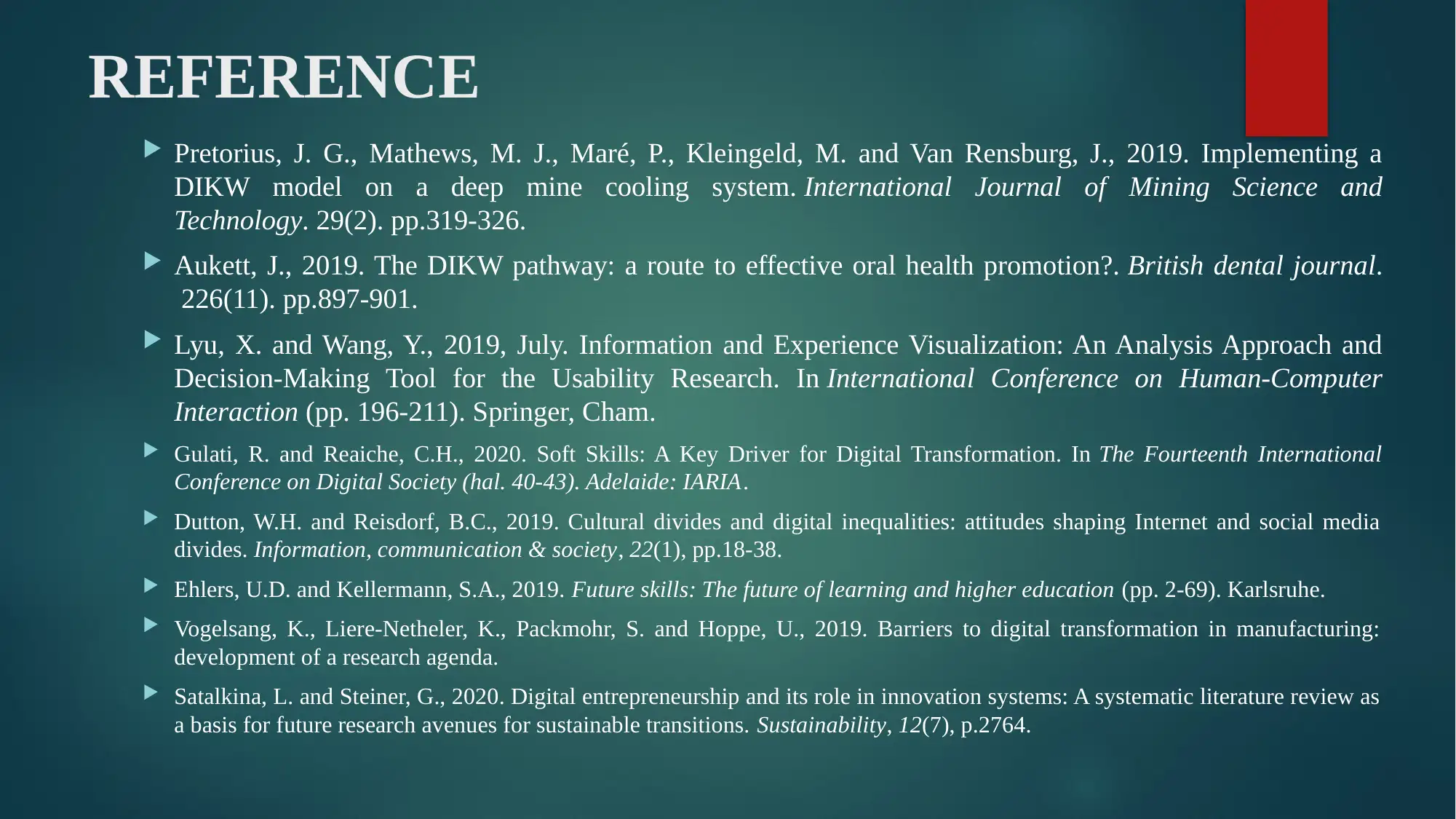
REFERENCE
Pretorius, J. G., Mathews, M. J., Maré, P., Kleingeld, M. and Van Rensburg, J., 2019. Implementing a
DIKW model on a deep mine cooling system. International Journal of Mining Science and
Technology. 29(2). pp.319-326.
Aukett, J., 2019. The DIKW pathway: a route to effective oral health promotion?. British dental journal.
226(11). pp.897-901.
Lyu, X. and Wang, Y., 2019, July. Information and Experience Visualization: An Analysis Approach and
Decision-Making Tool for the Usability Research. In International Conference on Human-Computer
Interaction (pp. 196-211). Springer, Cham.
Gulati, R. and Reaiche, C.H., 2020. Soft Skills: A Key Driver for Digital Transformation. In The Fourteenth International
Conference on Digital Society (hal. 40-43). Adelaide: IARIA.
Dutton, W.H. and Reisdorf, B.C., 2019. Cultural divides and digital inequalities: attitudes shaping Internet and social media
divides. Information, communication & society, 22(1), pp.18-38.
Ehlers, U.D. and Kellermann, S.A., 2019. Future skills: The future of learning and higher education (pp. 2-69). Karlsruhe.
Vogelsang, K., Liere-Netheler, K., Packmohr, S. and Hoppe, U., 2019. Barriers to digital transformation in manufacturing:
development of a research agenda.
Satalkina, L. and Steiner, G., 2020. Digital entrepreneurship and its role in innovation systems: A systematic literature review as
a basis for future research avenues for sustainable transitions. Sustainability, 12(7), p.2764.
Pretorius, J. G., Mathews, M. J., Maré, P., Kleingeld, M. and Van Rensburg, J., 2019. Implementing a
DIKW model on a deep mine cooling system. International Journal of Mining Science and
Technology. 29(2). pp.319-326.
Aukett, J., 2019. The DIKW pathway: a route to effective oral health promotion?. British dental journal.
226(11). pp.897-901.
Lyu, X. and Wang, Y., 2019, July. Information and Experience Visualization: An Analysis Approach and
Decision-Making Tool for the Usability Research. In International Conference on Human-Computer
Interaction (pp. 196-211). Springer, Cham.
Gulati, R. and Reaiche, C.H., 2020. Soft Skills: A Key Driver for Digital Transformation. In The Fourteenth International
Conference on Digital Society (hal. 40-43). Adelaide: IARIA.
Dutton, W.H. and Reisdorf, B.C., 2019. Cultural divides and digital inequalities: attitudes shaping Internet and social media
divides. Information, communication & society, 22(1), pp.18-38.
Ehlers, U.D. and Kellermann, S.A., 2019. Future skills: The future of learning and higher education (pp. 2-69). Karlsruhe.
Vogelsang, K., Liere-Netheler, K., Packmohr, S. and Hoppe, U., 2019. Barriers to digital transformation in manufacturing:
development of a research agenda.
Satalkina, L. and Steiner, G., 2020. Digital entrepreneurship and its role in innovation systems: A systematic literature review as
a basis for future research avenues for sustainable transitions. Sustainability, 12(7), p.2764.
⊘ This is a preview!⊘
Do you want full access?
Subscribe today to unlock all pages.

Trusted by 1+ million students worldwide
1 out of 9
Related Documents
Your All-in-One AI-Powered Toolkit for Academic Success.
+13062052269
info@desklib.com
Available 24*7 on WhatsApp / Email
![[object Object]](/_next/static/media/star-bottom.7253800d.svg)
Unlock your academic potential
Copyright © 2020–2025 A2Z Services. All Rights Reserved. Developed and managed by ZUCOL.





